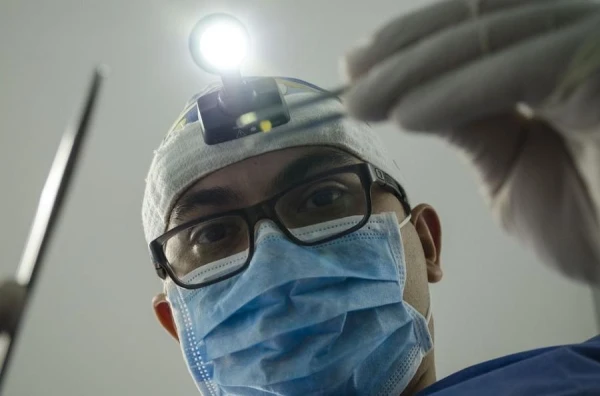
There are several symptoms that should raise alarm and prompt a person to visit a dentist immediately. Doctor Ilya Antonov discussed the signs indicating the need for urgent consultation with a specialist.
The first alarming signal is tooth pain that occurs when consuming sweets. If the sensitivity of the tooth manifests sharply and quickly subsides after eating, it may indicate the onset of caries. The sooner this defect is addressed, the fewer problems it will cause in the future.
The second reason for an immediate visit to the doctor is a painful reaction to cold foods or drinks. If discomfort arises suddenly when consuming something cold, this also indicates possible caries. Caries develops quite quickly, especially with inadequate oral hygiene, so it is not advisable to postpone a visit to the dentist, thinking that everything will resolve on its own.
The third sign is a dull ache that manifests in the evening and may intensify at night. This condition may indicate an inflammatory process in the area of the tooth root apex. Resolving this issue will require treatment of the root part of the tooth, which can be complex and require additional procedures.
The fourth alarming sign is bleeding gums. Initially, the gums may bleed during brushing, but over time the situation worsens, and bleeding occurs even without visible reasons. Swelling of the gum papillae, redness of the gums, and bad breath may also appear. All these symptoms may indicate serious systemic problems in the oral cavity that require treatment.
The fifth reason for an urgent visit to the dentist is the appearance of “foamy saliva” or increased dryness in the mouth. These manifestations may indicate inflammation of the salivary glands or problems with the ducts. It is important to understand that treatment may be prolonged and complicated if therapy is not started as soon as possible.
You should see a doctor if there is an increase in the size of the tongue or the appearance of a coating that changes color to dark, bright yellow, or even dark brown. You should also be concerned if the taste of foods has changed, or if the tongue has become flattened, making the papillae more noticeable. These symptoms may indicate not only dental problems but also other systemic and chronic diseases that require intervention not only from dentists but also from specialists such as gastroenterologists.
The seventh sign may be the consequences of prosthetics, including crowns, bridges, and removable dentures. If after the installation of crowns or bridges the gums around them begin to redden, hurt, or bleed, it is necessary to see a doctor, as this may indicate the retention of cement residue between the tooth and the gum. If a sour taste or swelling of the tongue occurs after the installation of crowns or removable structures, this may be a sign of an allergic reaction to the materials, and in such cases, the structures will need to be replaced.
The eighth sign that requires urgent dental attention may be pain when chewing in the area of recently installed implants or crowns. This may occur due to overload of the structure, and it is important to correct the situation; otherwise, inflammation of the tissues around the implant or suppuration may occur. If there is redness and bleeding around the implants, this may indicate the presence of a foreign body under the gum. If the problem is not resolved in time, it may lead to implant rejection.
It is important to remember that delaying treatment is not advisable, as pathologies of the teeth, gums, and jaw can cause not only problems in the oral cavity but also negatively affect the overall health of the body. Infections and pathogens can spread through the blood from the oral cavity to other organs, causing disruptions in their function.












